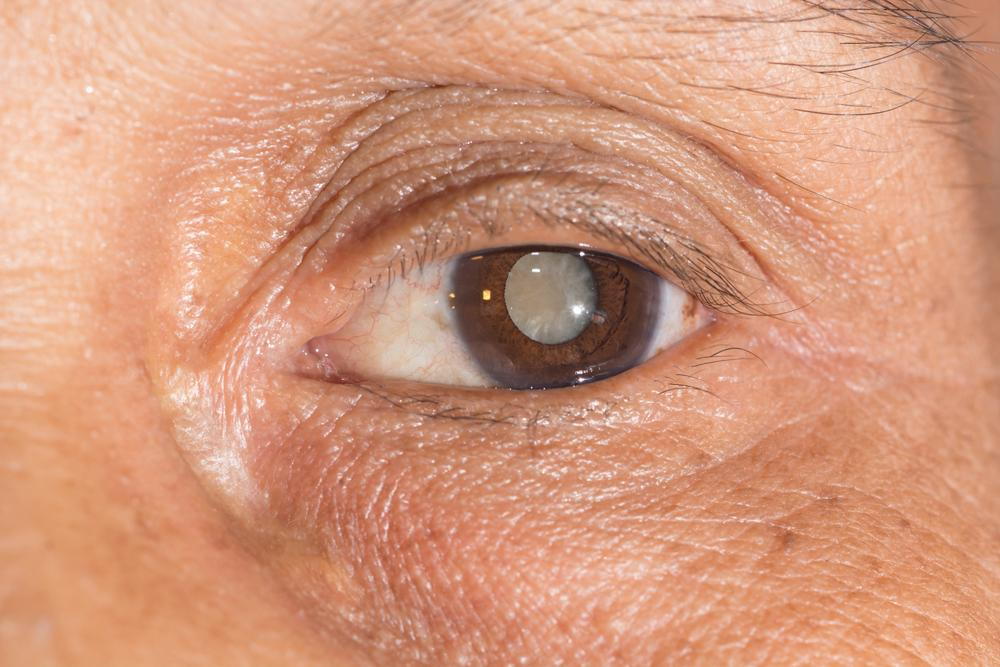
- posted: Dec. 22, 2023
7 Signs You Might Have Eye Cataracts
Sight is one of our most precious senses, which allows us to see the beauty of the world around us. However, as we age, certain conditions, like cataracts are one such common condition that affects millions of people worldwide. Understanding the signs and symptoms of cataracts is crucial for early detection and timely intervention. In this blog post, we will explore seven signs that might indicate the presence of cataracts.
Cataracts typically form over a long period of time and lead to blurry vision, which can make tasks like reading or driving difficult. Trusted LASIK Surgeons™ provides resources beyond LASIK like discussions on cataracts and cataract surgery as well as a Cataract Surgeons directory to help you learn more about cataracts and the treatments available.
Below are 7 signs that might indicate that you have a cataract in one or both eyes below:
Blurry or Clouded Vision
One of the most well-known signs of cataracts is blurry or clouded vision. If you find that your vision is progressively becoming unclear, like looking through a foggy window, this could be a sign you have a cataract. This cloudiness is caused by the gradual thickening of the eye's natural lens, impeding the passage of light to the retina. Sometimes people assume their blurry vision is due to age and don’t realize this may be a sign of a cataract. This is why it’s best to have regular eye exams with a competent eye doctor or eye surgeon (ophthalmologist).
Double Vision
Double vision is another early sign, but it may diminish as the cataract gets larger. If you are experiencing double vision in one eye, it’s important to see an eye care specialist as soon as you notice changes in your vision for proper treatment to rule out cataracts or other eye conditions.
Sensitivity to Light
Cataract can lead to increased sensitivity to light. You might notice that lights suddenly seem brighter than before or that those lights might even make your eyes hurt. Glare from headlights, lamps, or sunlight can be particularly bothersome for some people who have cataracts. You might also have a harder time seeing objects in that lighting due to cataracts. If you experience discomfort or find yourself squinting in response to light, it's time to consult with an eye doctor.
Seeing Halos and Glare
In addition to light sensitivity, you may start seeing halos or rings around the lights, especially in low-light situations. This happens when the clouding of your lens scatters light, resulting in a halo affect. Since the light does not enter the eye properly, it impacts the visual image. If you notice this happening to your vision, it is essential to see an eye doctor to help address this promptly to prevent further deterioration of your vision.
Trouble Seeing at Night
As cataracts progress, they can significantly impact your night vision, which can make it challenging to see clearly when driving at night or in low-light conditions. In this case, it’s best to let someone else drive you at night or try to take care of your tasks during the day. If you experience regular difficulty with night vision, consult an eye doctor to assess the possibility that you may have cataracts.
Differences in How You See Colors and Contrast
A cataract can also alter your perception of colors. Cataracts can make colors appear dull or yellow. They can also impact the contrast between colors and objects. If you observe a shift in color perception, especially in brightly lit environments, we recommend you schedule an eye examination with an eye doctor or ophthalmologist.
Frequent Need for New Glasses
It’s not unusual to need new eyeglass prescriptions every year or two. However, if you find your eyeglasses stop improving your vision more frequently than before, a cataract could be developing. If you notice a decline in your vision, please see an eye doctor who can help determine whether you have cataracts or another vision problem and what treatment options are available.
Cataract Surgery and Premium Lenses (IOLs)
Please visit our Cataract Surgery discussion page as well as our Laser-Assisted Cataract Surgery discussion.
To learn more out lens implants used in cataract surgery, please visit our Intraocular Lens Implant (IOL) discussion where we provides additional information about the various types of premium lenses that are available for cataract surgery as well as advanced technologies that may be used in connection with a cataract surgery procedure.
How to Find an Expert Cataract Surgeon
Because there are many options for premium lenses which offer benefits beyond the monofocal lenses which are usually covered by Medicare and private insurance for cataract surgery, we believe it is important to find a highly qualified cataract surgeon like those featured in our Cataract Surgeons Directory, please visit:
Trusted Cataract Surgeons™ Directory URL: https://trustedlasiksurgeons.com/find-a-cataract-surgeon.html
If you don’t have cataracts but have other vision problems that may be corrected by another refractive surgery procedure like LASIK, PRK, SMILE Eye Surgery, EVO ICLs, or Kamra Inlay, please use our LASIK surgeon directory by visiting:
Trusted LASIK Surgeons™ Directory URL: https://trustedlasiksurgeons.com/find-a-lasik-surgeon.html
The screening process and standards used by Trusted Cataract Surgeons™ and Trusted LASIK Surgeons™ can be found at:
How Are Eye Surgeon Qualified at Trusted Cataract Surgeons™ and Trusted LASIK Surgeons™?
Trusted LASIK Surgeons™ and Trusted Cataract Surgeons™
Trusted LASIK Surgeons™ and Trusted Cataract Surgeons is an online business that provides LASIK and Cataract Surgeon directories and consumer resources concerning eyesight and vision correction as well as a Consumer Checklist for the True Cost of LASIK.
Please Contact Us or call for more information.
Copyright ©2023 Trusted LASIK Surgeons™ and Trusted Cataract Surgeons™ All Rights Reserved.
Website Powered By iMatrix Ophthalmology

